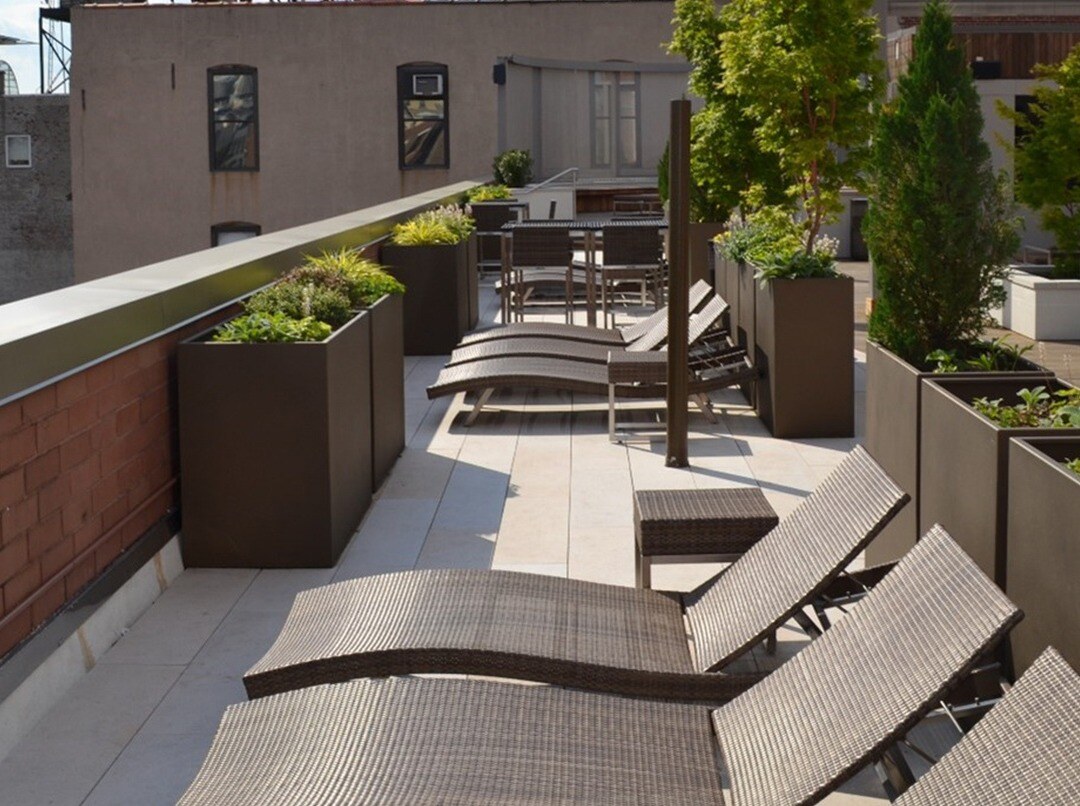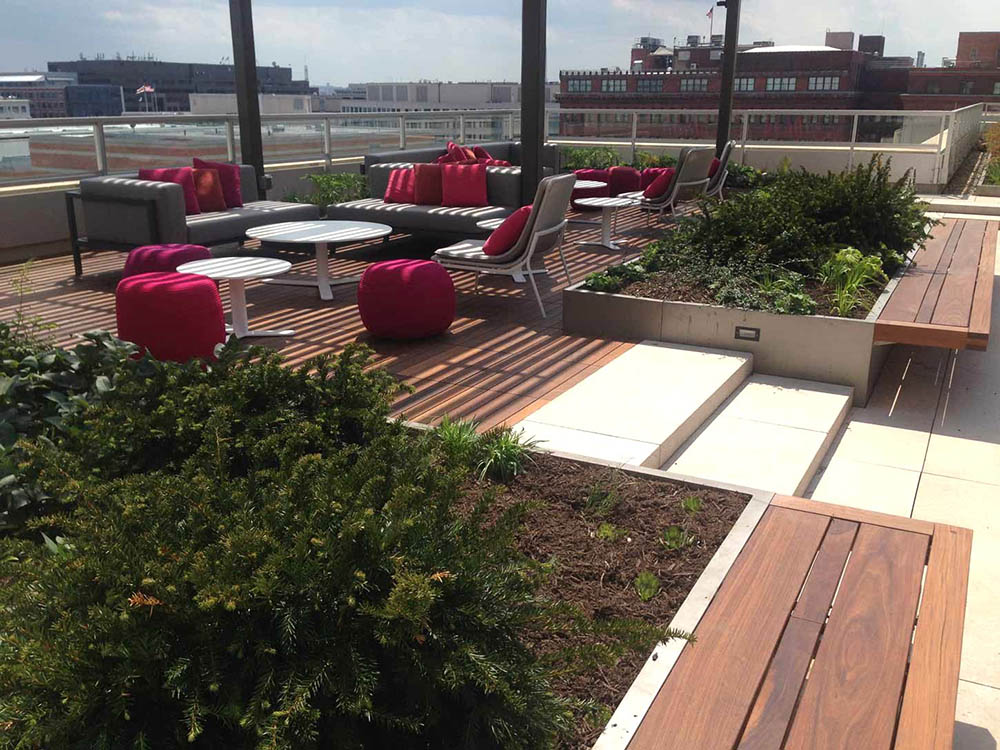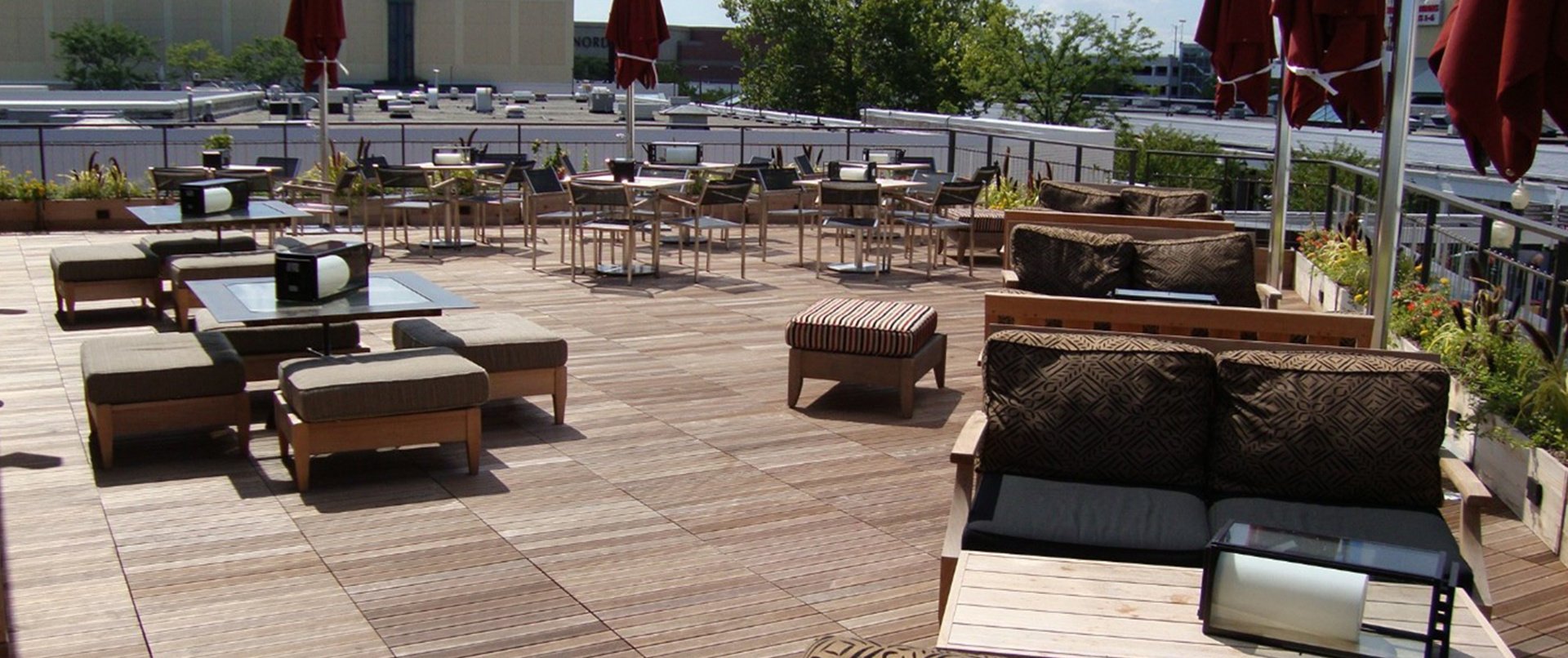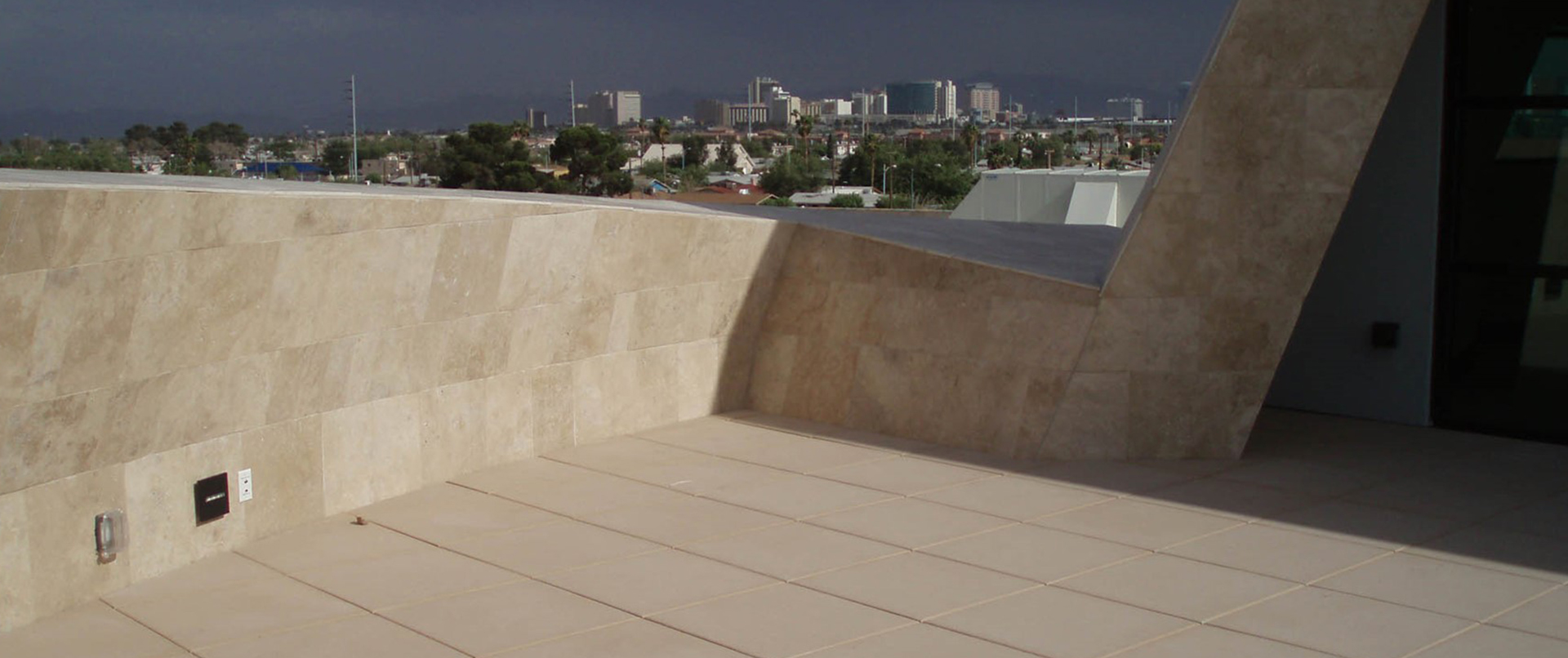Hardwood decking turns underused rooftops into standout destinations, bringing the calming feel of nature into high-value real estate. There's a rising demand for sustainable, wellness-focused design, and rooftops present unique challenges, such as weather exposure and the need for durable, sustainable, and easily replaceable materials. High-performance hardwood decking enables rooftop spaces that prioritize both health and sustainability, creating inviting environments that elevate user experience.
Hardwood Decking: A Foundation for Biophilic Rooftop Design
Hardwood deck tiles bring a natural touch to outdoor living spaces, directly aligning with the principles of biophilic design. Biophilic design is the practice of connecting building occupants with nature, recognizing that this connection can lead to significant improvements in well-being, productivity, and overall happiness. Wood introduces natural visual warmth, which is core to biophilic design’s goal of "repeated and sustained engagement with nature." This organic element adds an authentic warmth and tactile richness that invites people to linger, fostering a sense of comfort and connection to the outdoors. Research consistently shows that incorporating wood materials into environments can have a positive effect on moods, reducing stress, lowering heart rates, and enhancing overall well-being. This makes hardwood decking an ideal choice for creating serene, engaging, and restorative rooftop oases, whether for commercial amenities, healthcare facilities, or residential escapes.
Hardwood Decking That Supports Real Sustainability in Multiple Ways
Sustainability begins with sourcing, and the selection of hardwood can significantly impact a project's environmental footprint. FSC®-certified hardwoods support responsible sourcing, which is increasingly important to environmentally conscious tenants, investors, and brand-aware users. This certification ensures that the wood comes from forests that are managed in an environmentally responsible, socially beneficial, and economically viable manner, promoting long-term ecological balance and community well-being.
Beyond responsible harvesting, the modular nature of hardwood decking tiles creates a significant advantage for long-term sustainability. If a section of the deck becomes damaged or if access to the underlying roof membrane is needed for maintenance, you can replace or remove only the affected tiles. This minimizes waste, reduces downtime, and prevents extensive disruption to revenue-generating rooftop spaces, further supporting sustainable building practices and reducing lifecycle costs. This ease of maintenance ensures the deck remains functional and beautiful for decades.
Performance Under Pressure: Why Hardwood Works in Demanding Environments
Rooftops are inherently extreme environments; materials must withstand more than just routine weather conditions. In demanding environments, sustainability is the key to providing superior resilience and longevity. Building owners frequently face rooftop challenges related to intense UV exposure, constant moisture from rain and humidity, and significant temperature fluctuations. High-density hardwood decking, such as Ipê or Massaranduba, naturally resists these challenges, maintaining its structural integrity and aesthetic appeal over time without warping or cracking.
Unlike many synthetic materials, hardwood develops a natural patina as it ages, a graceful process that preserves its appearance and character without compromising durability. Furthermore, quality hardwood can be sanded and refinished multiple times throughout its lifespan, significantly extending its service life and drastically reducing replacement waste. This inherent characteristic is yet another example of why hardwoods are a sustainable building material, supporting long-term sustainable building goals and reducing overall lifecycle costs for building owners.
Proven in the Field: Case Studies in Hardwood Rooftop Success
Real projects demonstrate the impactful versatility of hardwood deck tiles across diverse sectors and climates.
The Godfrey Hotel, Chicago, IL

The Godfrey Hotel in Chicago’s River North features an impressive 15,000-square-foot rooftop, complete with a retractable roof, a vibrant bar, and a cozy fire pit area. Designed as a stylish, year-round event space, it offers stunning city views. Bison contributed key materials, including its hardwood decking and pedestal systems, to help create a durable, functional deck that perfectly complements the venue’s modern design, providing a high-end experience for guests throughout the seasons.
Aqua Oasis, Waikiki, HI
.jpg?width=1920&height=806&name=aquaoasis_3%20(1).jpg)
The Aqua Oasis hotel in Waikiki, Hawaii, features 10 floors with a little over 90 rooms. Designed to provide a garden oasis, it provides guests a respite from busy Waikiki Beach. The sun deck was constructed using large-format modular 2x4 Bison Ipê Ribbed Wood Tiles supported by adjustable Bison Level.It Pedestals, adding to the serene atmosphere of the hotel.
Modular Hardwood Decking from Bison
Modular hardwood decking adds natural warmth and texture to rooftop spaces, supporting biophilic design by fostering a deeper connection between people and nature. While rooftops present harsh conditions, such as intense sun, persistent moisture, and constant wear, sustainably sourced hardwoods endure these challenges, maintaining their strength and beauty over time. Its inherent durability lowers lifecycle costs and significantly enhances occupant well-being. Ultimately, hardwood decking creates resilient, healthy rooftop spaces where innovative design and the calming power of nature beautifully unite.
Contact Bison Innovative Products today to explore our premium decking solutions.
Want to Keep Reading?
- Healing Environments: Biophilic Design in Hospitals
- Garage Rooftop Deck: Biophilic Design with Bison Deck Systems
Important Notice: Bison Innovative Products recommends that all rooftop deck systems should be installed by a licensed contractor with at least 2 years of proven experience. Plans/designs for a rooftop deck should be reviewed by a safety/structural engineer before commencing construction. The roof must be able to safely carry the static and live load weights of the rooftop deck, and any amenities added along with the appropriate density of any insulation to resist crushing and damaging the waterproof membrane. Adding items such as hardscaping features, hot tubs, or pools to a rooftop deck requires additional guidance and oversight from an engineer. Property owners should research and abide by any building codes and other regulations to obtain the required permits prior to having a rooftop deck installed. Please read all product specifications posted on Bisonip.com to review all information prior to any installation.
.png?width=100&height=100&name=BisonIP-logo-PMS425-2023%20(1).png)



